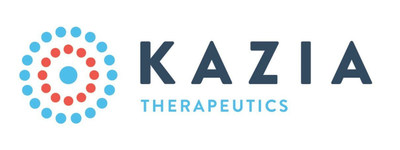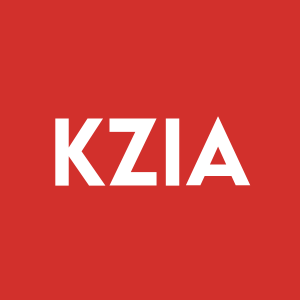Kazia Therapeutics licenses paxalisib to Sovargen for intractable seizures in rare central nervous system diseases
- None.
- None.
Insights
The licensing agreement between Kazia Therapeutics and Sovargen represents a strategic move that could potentially unlock new revenue streams for Kazia. The upfront payment of $1.5 million is a modest cash infusion, but the real financial potential lies in the milestone payments and the ongoing royalties on net sales. Given that FCD T2 and TSC are orphan diseases, the pricing power and market exclusivity typically associated with orphan drug status could lead to significant revenues if paxalisib is successfully developed and commercialized.
Investors should note that the exclusion of key Asian markets in the agreement could limit the total addressable market for paxalisib. However, retaining rights in these regions allows Kazia to pursue separate deals, potentially increasing the overall value derived from paxalisib. The partnership's success hinges on clinical and regulatory milestones, which introduces a degree of risk and uncertainty that should be factored into valuation models and investment decisions.
The licensing of paxalisib for CNS diseases like FCD T2 and TSC disease is a noteworthy development, as these conditions lack approved treatments and represent an area of high unmet medical need. Paxalisib's dual inhibition of PI3K and mTOR and its ability to penetrate the brain could be a significant advantage in treating mTORopathies. The efficacy of paxalisib in oncology, its primary indication, may offer insights into its potential success in these additional indications.
However, the development pathway for treatments in rare diseases is fraught with challenges, including small patient populations for clinical trials and the need for robust evidence of efficacy and safety. The long-term success of this agreement will depend on the drug's clinical trial outcomes and the ability to navigate the complex regulatory landscape surrounding orphan drugs. If successful, paxalisib could become a key player in a niche market with a lack of competition, which is often attractive from a commercial perspective.
Entering the CNS disease space through licensing agreements allows Kazia to leverage its existing drug, paxalisib, in new therapeutic areas without diverting its primary focus from oncology. The orphan drug market is known for its favorable regulatory incentives, including extended market exclusivity, tax credits for clinical costs and assistance with clinical trial design, which can enhance the commercial viability of paxalisib for FCD T2 and TSC.
Market opportunity assessments for orphan drugs often consider the prevalence of the disease and the ability to reach underserved patient populations. With no current approved drugs for FCD T2, the market is ripe for entry, assuming clinical success. Investors should monitor the progression of clinical trials and the adoption rate post-commercialization to gauge the potential market penetration and revenue growth for Kazia.
Under the agreement, Kazia will receive an upfront payment of
Kazia CEO Dr. John Friend said: "We are pleased to announce we have exclusively licensed the development, manufacture and commercialization of paxalisib to Sovargen for its potential use in select CNS diseases that are associated with mTORopathy. Kazia's primary focus of paxalisib continues to be oncology, with multiple studies ongoing. Our license with Sovargen provides us the ability to explore the impact of paxalisib outside of our area of expertise where there is substantial patient need and market opportunity. We are enthusiastic about seeing paxalisib's potential explored in these patient populations."
Sovargen CEO Cheolwon Park shared his excitement about the collaboration: "The dual inhibition mechanism of paxalisib, coupled with its observed safety profile from previous oncology studies, positions us to anticipate initiation of a Phase 2 clinical trial for patients with FCD T2 and TSC in the latter half of 2024. Sovargen has played a pioneering role in identifying the critical link between mTOR hyperactivation due to mTORopathy somatic mutations and epileptic seizures in FCD T2 patients and we have an unwavering dedication to developing effective treatments for these patients."
About Kazia Therapeutics Limited
Kazia Therapeutics Limited (NASDAQ: KZIA) is an oncology-focused drug development company, based in
Our lead program is paxalisib, an investigational brain-penetrant inhibitor of the PI3K / Akt / mTOR pathway, which is being developed to treat multiple forms of brain cancer. Licensed from Genentech in late 2016, paxalisib is or has been the subject of ten clinical trials in this disease. A completed Phase 2 study in glioblastoma reported early signals of clinical activity in 2021, and a pivotal study in glioblastoma, GBM AGILE, is ongoing, with final data expected in 1H2024. Other clinical trials are ongoing in brain metastases, diffuse midline gliomas, and primary CNS lymphoma, with several of these having reported encouraging interim data.
Paxalisib was granted Orphan Drug Designation for glioblastoma by the FDA in February 2018, and FTD for glioblastoma by the FDA in August 2020. Paxalisib was also granted FTD in July 2023 for the treatment of solid tumour brain metastases harboring PI3K pathway mutations in combination with radiation therapy. In addition, paxalisib was granted Rare Pediatric Disease Designation and Orphan Drug Designation by the FDA for diffuse intrinsic pontine glioma in August 2020, and for atypical teratoid / rhabdoid tumours in June 2022 and July 2022, respectively.
Kazia is also developing EVT801, a small-molecule inhibitor of VEGFR3, which was licensed from Evotec SE in April 2021. Preclinical data has shown EVT801 to be active against a broad range of tumour types and has provided evidence of synergy with immuno-oncology agents. A Phase I study is ongoing and preliminary data is anticipated in CY2024.
For more information, please visit www.kaziatherapeutics.com or follow us on Twitter @KaziaTx.
About Sovargen
Sovargen Co., Ltd. is a biotechnology company focused on the discovery and development of drugs to treat rare and incurable neurological disorders that are caused by brain somatic mosaicism.
Sovargen's platform technology is associated with ASO (Antisense Oligonucleotide) development for undruggable targets in CNS disease including technology for target discovery (SovarIN™), ASO drug discovery & optimization (SovarON™), and target validation & efficacy evaluation platform using disease-specific animal model and human organoid system (SovarUP™).
For more information, please visit www.sovargen.com
Forward-Looking Statements
This announcement may contain forward-looking statements, which can generally be identified as such by the use of words such as "may," "will," "estimate," "future," "forward," "anticipate," or other similar words. Any statement describing Kazia's future plans, strategies, intentions, expectations, objectives, goals or prospects, and other statements that are not historical facts, are also forward-looking statements, including, but not limited to, statements regarding: expansion of paxalisib into other indications including intractable epilepsy in focal cortical dysplasia type 2 (FCD T2) and tuberous sclerosis complex (TSC) disease, expectations regarding whether milestones will be met, expectations on market opportunities for paxalisib in FCD T2 and TSC, plans to initiate clinical trials for paxalisib in FCD T2 and TSC, the timing for results and data related to Kazia's clinical and preclinical trials and investigator-initiated trials of Kazia's product candidates, and Kazia's strategy and plans with respect to its programs, including paxalisib and EVT801. Such statements are based on Kazia's current expectations and projections about future events and future trends affecting its business and are subject to certain risks and uncertainties that could cause actual results to differ materially from those anticipated in the forward-looking statements, including risks and uncertainties: associated with clinical and preclinical trials and product development, related to regulatory approvals, and related to the impact of global economic conditions. These and other risks and uncertainties are described more fully in Kazia's Annual Report, filed on form 20-F with the United States Securities and Exchange Commission (SEC), and in subsequent filings with the SEC. Kazia undertakes no obligation to publicly update any forward-looking statement, whether as a result of new information, future events, or otherwise, except as required under applicable law. You should not place undue reliance on these forward-looking statements, which apply only as of the date of this announcement.
This announcement was authorized for release by Dr John Friend, CEO.
![]() View original content to download multimedia:https://www.prnewswire.com/news-releases/kazia-therapeutics-licenses-paxalisib-to-sovargen-for-intractable-seizures-in-rare-central-nervous-system-diseases-302095972.html
View original content to download multimedia:https://www.prnewswire.com/news-releases/kazia-therapeutics-licenses-paxalisib-to-sovargen-for-intractable-seizures-in-rare-central-nervous-system-diseases-302095972.html
SOURCE Kazia Therapeutics Limited






